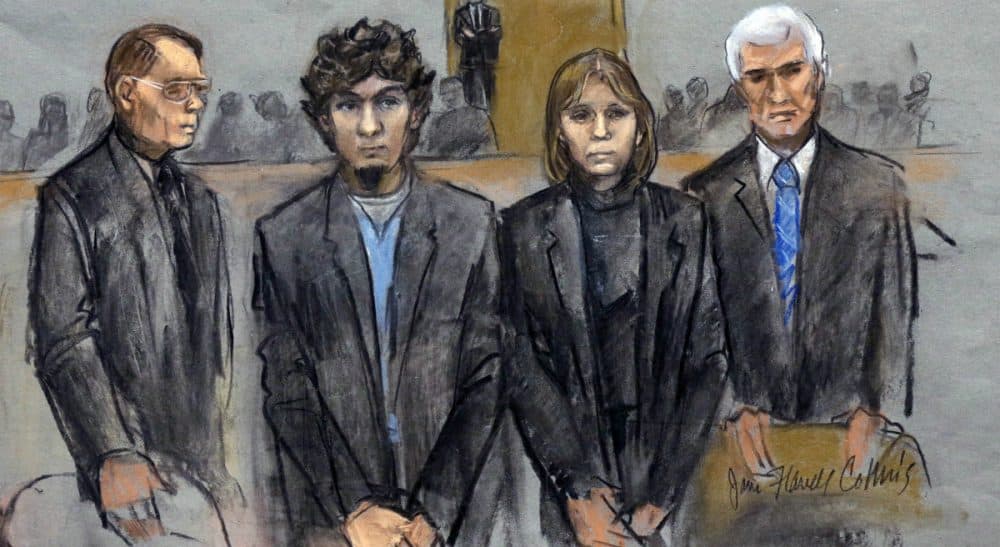Advertisement
A Sobering Decision Now Faces The Tsarnaev Jury

From the beginning, multiple guilty verdicts against Dzohkhar Tsarnaev have essentially been foregone conclusions. If prosecutors were focused exclusively on obtaining a conviction, they could probably have secured a plea and a sentence of life in prison, saving our tax dollars and sparing us the wrenching spectacle of a trial. But they would not have secured a death sentence, and executing Tsarnaev has been the purpose of this federal prosecution. Massachusetts abolished capital punishment years ago, so, as Harvey Silverglate and Samantha Miller point out, “The real reason Tsarnaev is being tried in federal court is because U.S. Attorney Carmen Ortiz, and her boss Attorney General Eric Holder, want the surviving Boston Marathon bomber to die.”
Do 12 jurors want him to die? The trial now enters the sentencing phase, during which jurors will be asked to weigh aggravating and mitigating factors, for and against a death sentence. Only people who do not oppose capital punishment are eligible to sit in judgment in a capital case, which means that Tsarnaev faces a jury already predisposed to sentence some convicted murderers to death. The nature of his crimes and the wrenching images of his multiple victims already introduced by the prosecution may make him seem deserving of execution, especially to people who regard it as an occasionally necessary exercise in justice.
If Tsarnaev is sentenced to death instead of a greatly diminished life in prison without parole, people seeking closure in his execution are unlikely to find it anytime soon.
Tsarnaev’s attorneys will argue that he doesn’t deserve to die, because (as they have argued during the guilt phase of the trial) he was under the influence of his older brother and, was in effect, an instrument of Tamerlan’s violent, cold-blooded fanaticism. The defense need only convince one juror to spare Tsarnaev’s life: The decision to execute him must be unanimous. Death penalty opponents (like me) wish them luck, which they’ll need, as the jury decides his fate only days before the second anniversary of the marathon bombing.
If Tsarnaev is sentenced to death instead of a greatly diminished life in prison without parole, people seeking closure in his execution are unlikely to find it anytime soon. His attorneys will file appeals that will take years. Only if he is sentenced to life can we expect to see the case closed.
Regardless of the trial’s outcome, the bombing’s effects will linger, not just for its traumatized survivors. Whether or not Tsarnaev is sentenced to death and whether or not his sentence is eventually executed, the marathon is likely to be a source of civic anxiety as well as pride for years, as tight security measures surrounding it attest. While a death sentence will feel like justice to some and gratuitous vengeance to others, it will not make any of us safe. Would Tsarnaev’s death help make Boston Strong? Arguably, but only if it’s greeted soberly, as an occasion for mourning and not celebration.
